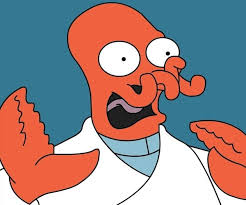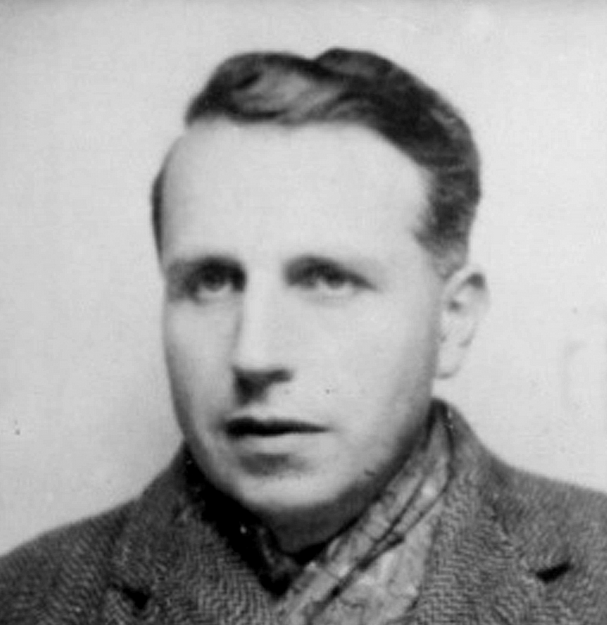Randomly decided to start eating one meal a day (for autistic reasons, not losing weight) and couldn’t find any guides that don’t devolve into “it cures cancer”.
I’m doing mostly fine, but I don’t want to learn that I accidentally screwed my health by doing something very wrong way after the fact.
An intermittent fasting tracker like this one did genuinely help me start down that path.
This video isn’t a how-to-guide, but gets more into the science behind it.
This is exactly what I was looking for, thanks!
I found a YouTube link in your comment. Here are links to the same video on alternative frontends that protect your privacy:
Hahaha I just linked that video too! So glad others are watching it.
I have done OMAD off and on for almost a decade and have also done several multi day fasts. If you have any specific questions I can maybe help.
Some things I find makes it way easier.
-
A low carb or ketogenic diet makes hunger occur way less often and easier to ignore. Most days, once I have been on the diet for a bit,I just do not feel hunger at all. Even when it’s time to eat.
You don’t have to do this. I am just saying that when I do OMAD with keto it’s easier to get into the swing of things than without. If you do multi day fasting though you will want to become fat adapted which is basically staying in ketosis for 2 weeks. You also don’t HAVE to do that but it is much safer and makes transitioning to a fasted state much easier. -
Electrolytes matter way more.
If you also do keto then they mater even more than that.
Regardless of your diet path you should look into sodium and potassium supplements during your fasting time. Doesn’t have to be a lot but I use iodized table salt and potassium citrate. Don’t be scared of salt, just make sure you are getting in the right amounts of potassium. There is a subreddit guide for fasting. It has recommended amounts but those are also for extended fasts. You might not need them doing OMAD but if you start to notice a trend of being low energy that isn’t caused by sleep issues or other things then you might try some electrolytes around then and see if it helps.
These are the two bigger things I can think of but I have done this so long it’s all sort of just habit now.
Adding a source video about Intermittent fastings effects on metabolism and other such issues including tackling myths about “you will loose muscle mass” etc. spoilers, you won’t.
https://youtu.be/7nJgHBbEgsE?si=wh8gN_YPkWA_4VdFI guess I’m going to ask you my dumb questions then.
-
Should I eat snacks outside the meal time? So far I’m eating fruits or the odd boiled egg, but I got mixed messages on whether that was necessary. I’d prefer to keep all eating to meal time eventually, but I’ll accept the inconvenience if it’s for the best.
-
Is there some kind of food I should really watch out for? Like pasta, cheese or something like that?
-
If doing this as a lifestyle, how could one deal with some kind of eating event (say, a late night pizza party with friends) that falls outside the normal window? I assume it’d not be very cool to fast for longer than 24 hours, but I also wonder if there are any risks to a sudden doubling on eating times after the body gets used to it.
Sorry if any questions sound silly.
-
If you have snacks then you aren’t doing OMAD. lol. The entire purpose is to fast for essentially 23 hours ever day. One meal a day mean you eat once a day. I usually do a mix of OMAD and a 20:4 fast. So one day I might eat the OMAD and another day I have a 4 hour eating window, usually between 2-6pm.
-
I would stay away from meals with high amounts of process carbs and sugars. Pasta being one of them. You don’t HAVE to but they will spike your insulin like crazy and crash you hard and make hunger way worse. Those sorts of foods digest fast and leave you feeling hungry and unsatiated. Fats and proteins are more filling, digest more slowly, and will leaving you feeling fuller, longer. I primarily focus on protein. Your body wants to eat for protein first. Proteins from whole foods are best. Make sure you get in enough protein.
Side note, also stay away from processed seed oils. Basically any “vegetable oil” that’s not olive, coconut, palms, or avocado. Most all other vegetable oils come from highly processed seeds (soy, canola, corn, cottonseed, etc) that involves lots of repeated heating and mixing with chemical solvents to purify them. By the time they make it to the bottles they are already rancid. These oils are essentially poison and they are also in fucking everything. -
So first off, fasting for longer than 24 hours is fine. Just make sure you are taking in proper electrolytes. Being on keto makes it easy. There were a few times I got off work and was too tired and just went home and went to bed. Woke up and didn’t eat till dinner the next day. Easy 48 hour fast. My longest was 162 hours (almost 7 days) of just water and electrolytes. People on the fasting subreddit sometimes got for 14 days or more. If you don’t have any health conditions and have your electrolytes taken care of you should be ok. Just have to re-feed properly coming out of it if you do more than like 3 days. It actually does not feel bad at all either. After the 2nd or 3rd day you basically just stop feeling hungry. As long as you get the electrolytes you won’t feel bad either. In fact, I LOVE how I feel when I’m fasting properly. It’s a mental clarity I can’t really describe. The body feels light and mobile and fairly motivated to do shit. Kind of hard to describe.
As far as going to events and eating multiple times a day or whatever… I mean, you can just eat like normal some days. I do OMAD and the 20:4 fast during the week. On the weekends I usually still won’t have breakfast but will snack and do whatever for the rest of the day after noon or so. It won’t like, ruin you. Once your body gets used to doing fasting it’s not like one or two days of not fasting will set you back to square one. Your body will just get to a point where it is like “I can eat now or I can just wait, whatever.” Eating more often and stuff only really can be dangerous if you do multi day fasting of longer than 3 day then come back and eat a ton. That can really fuck you up. If you ever do do an extended fasts like that though just make sure you’ve done your research.
The key thing to take away from getting into OMAD for me was “I will eat when I want to eat and not let my hunger control me. I know that I don’t have to eat ever 4 hours. I will be fine and my body is not going to starve.” For me it’s empowering. I see so many people freaking out about having to have breakfast, lunch, dinner, snacks. Like their whole day is consumed with… Consumption. I would go to work and all I would hear is people crying about their next meal and I realized how much people just obsessed over it. It made me realize how much more time I had for myself and the things I wanted to do. The thing with fasting is it’s not about what you HAVE to do, it’s about what you DON’T have to do. I DON’T have to cook so many meals. I DON’T have to eat if I don’t want to. I DON’T have to worry if I miss a meal. Your body is not some fragile little thing that’s going to break down the second you go without a meal.
Another thing it helps me with is, ironic enough, I have self control issues. I cannot portion control. I never could. I struggled with weight all my life. When I eat I want to eat till I’m full. So fasting helped me control that. I am either a ravenous beast, or I “monk out” and just don’t eat at all and that’s just how I have to live. It’s easier that anything else I have tried.
This helped a lot, thanks!
-
On top of my other comment once you get into it heavily you realize how much you were just eating out of habit. Like when I do my 5-7 day fasts the hard part isn’t feeling bad or hunger. I don’t feel bad and the hunger goes away after a while. The hard part is the habit of eating when I do certain things or at that specific time of day. I literally only ended my (almost) 7 day fast was because I was just bored of not eating. I wanted to taste something other than water. lol
-
I found a YouTube link in your comment. Here are links to the same video on alternative frontends that protect your privacy:
-
deleted by creator
unless you’re skimping on some nutrients
Just because a meal contains all nutrients, that doesn’t mean the body will have time or be able to process and use all of those nutrients. You can’t just dump food/nutrients into your body and expect it all to be absorbed.
deleted by creator
I guess the person doing it would have to decide for themselves if it makes them feel better or not. One can always go do a blood vitamin check and see what they’re missing, if anything.
I don’t want to learn that I accidentally screwed my health by doing something very wrong.
You mean like by eating one meal a day?
Humans are foragers, our digestive systems are designed to constantly have something in our stomachs, that is because we need energy throughout the day (both for physical and mental exertion). What isn’t immediately used for energy from that one meal will either be stored (as fat) or excreted. The fat stores only get tapped into by strenuous physical activity, so what’s likely gonna happen is that you’ll be hungry for most of the day, and once you do eat you will overeat (cause the thinking goes: oh it’s only one meal, I have to eat for the whole day).
Please don’t do it, it isn’t healthy. My prediction is that you will be tired most of the time, you’ll have trouble remembering things, you’ll sleep longer, and you’ll feel a general lack of energy for most of the day. Eating one meal a day is basically starvation with extra steps.
This is terrible reasoning and even worse understanding of human evolution. Humans evolved to not only be able to live without food for extended periods of time but to utilize fasted time to clean out metabolic junk. People have fasted for all sorts of reasons for longer than the “3 meals a day” diets existed. Imagine thinking humans would have evolved with such a massive defect that if they got without 3 square meals a day they just lay down and die.
Studies have shown that the body increases metabolism when in a fasted state. It’s the bodies way of supplying you with energy so you can be motivated to go hunt and find food. It also increases focus and mental clarity. Similarly aiding in ones ability to locate food sources. The only reason people feel bad when going a few hours past their mealtime nowadays is due primarily to their bodies not knowing how to deal with it and be sure so much of people’s diet has high amounts of processed carbs and sugars which causes massive fluctuations in blood glucose and insulin levels.
Additionally it is amazing diabetes prevention. Causing your insulin levels to drop to baseline between meals and increasing insulin sensitivity. I was pre-diabetic before I started OMAD many years ago. Within 3 months my levels were back to perfectly normal even when not practicing OMAD. My Doctor took me off meds and I haven’t needed them since.
Here is a good video about some of the data behind therapeutic intermittent fasting.
https://youtu.be/7nJgHBbEgsE?si=wh8gN_YPkWA_4VdFI found a YouTube link in your comment. Here are links to the same video on alternative frontends that protect your privacy:
Humans are foragers
I disagree with this line of reasoning. Humans are also hunters, which means less frequent meals. However, even if prehistoric humans ate more frequently, this doesn’t translate 1:1 with what is optimal for humans now.
A lot of people eat one meal a day or in an intermittent fasting style, and while I’m no expert at those topics I haven’t heard anyone mentioning the negative effects you list. I can also chip in my own personal experience, when I was mostly eating one meal a day for a couple of months without those things happening to me.
starvation with extra steps
That’s meaningless sensationalism. Every caloric deficit can be called “starvation with extra steps”.
They would still eat snacks inbetween hunting via foraging, I watched a african tribe talk about how they ID what is safe to eat while out hunting and they said ‘watch what a monkey eats’
A lot of people eat one meal a day or in an intermittent fasting style
In intermittent fasting when you eat one meal a day you only do it for two days out of the week, and the rest of the week you eat normally. Even when you split your day 18/6, not eating/eating, the 6h hours allows you to eat two meals a long time apart. Enough time for your body to process the food and absorb the nutrients, and ready to get started on the next batch when you eat before the 6h is up.
when I was mostly eating one meal a day for a couple of months without those things happening to me.
I guess it depends how much you have in reserve. OP said he’s not doing it for weightloss. If someone who maintains normal weight by eating normally, cutting that down drastically and suddenly might negatively affect them.
Every caloric deficit can be called “starvation with extra steps”.
I was mostly talking about how it might make one feel.








